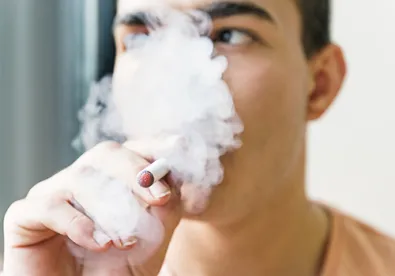On July 26, 2016, the Children's Nicotine Poisoning Prevention Act (CNPPA), Pub. L. 114-116, 130 Stat. 3 (Jan. 28, 2016), will become effective and will require manufacturers of nicotine-containing e-liquids to comply with the child-resistant packaging and testing requirements set forth in the Poison Packaging Prevention Act of 1970 (PPPA), Pub. L. 91-601, 84 Stat. 1,670 (Dec. 30, 1970).
Specifically, the law applies to "liquid nicotine containers," defined to include "package[s] from which nicotine in a solution or other form is accessible through normal and foreseeable use by a consumer and that is used to hold soluble nicotine in any concentration." Thus, bottles of nicotine-containing e-liquid sold directly to consumers for use in refillable "open-system" vaping devices are covered. For more background on the CNPPA, see here.
There is an important requirement created by the CNPPA that is not mentioned anywhere in the law: the General Certificate of Conformity (GCC). Under the Consumer Product Safety Act (CPSA), manufacturers of any product regulated under any consumer product safety rule are required to certify that the finished product (i.e., the filled and sealed e-liquid bottle sold to consumers) meets all of the applicable requirements. See CPSA § 14(a)(1), Pub. L. 92-573, 86 Stat. 1,207 (Oct. 27, 1972). Under the CPSA, if the manufacturer is located outside the U.S., the importer stands in the shoes of the manufacturer, CPSA § 3(a)(11). Importantly, the CNPPA's requirements for "liquid nicotine containers" are treated as a consumer product safety rule under the CPSA. See CNPPA § 2(c); CPSA § 14(a)(1).
E-liquid manufacturers and importers should work with reputable bottle suppliers who can provide test data and/or certificates confirming that their products are CNPPA compliant. These supplier test results and certificates are necessary, but it is still up to the manufacturer/importer of the finished e-liquid product to create a GCC that must be "furnished" to each e-liquid distributor and retailer. This furnishing requirement can be accomplished either by sending a paper copy of the GCC with each product shipment, or by providing distributors and retailers a unique electronic certificate identifier which allows them (as well as the CPSC) to access the GCC over the internet. See 16 C.F.R. 1110.13. These certificates must be tied to the products covered by the tests and no others.
E-liquid companies who have questions about how to prepare a GCC should consult their legal counsel.




 />i
/>i
